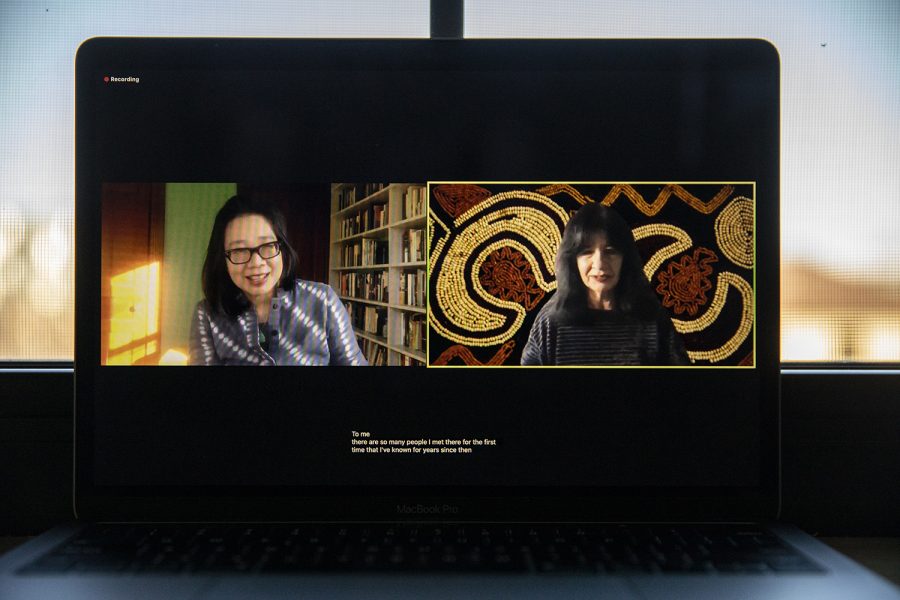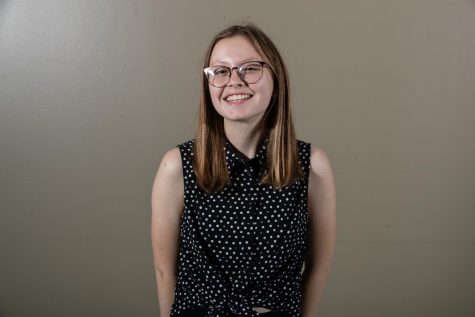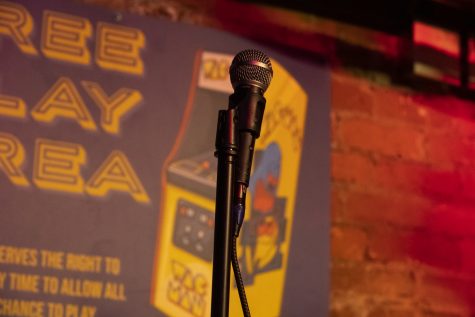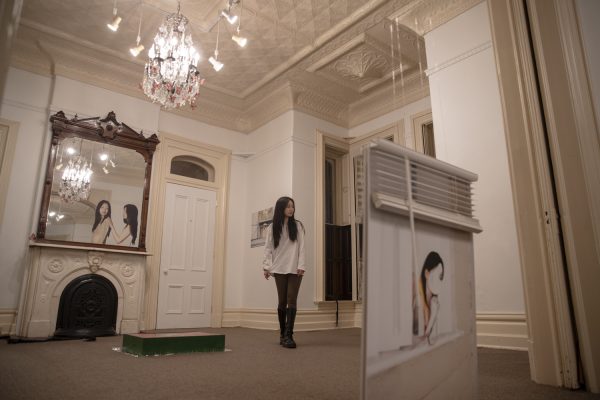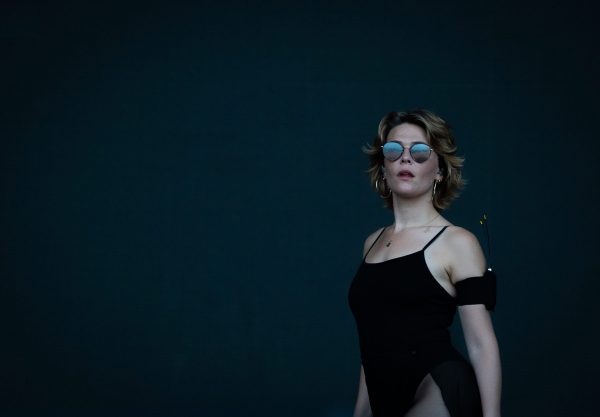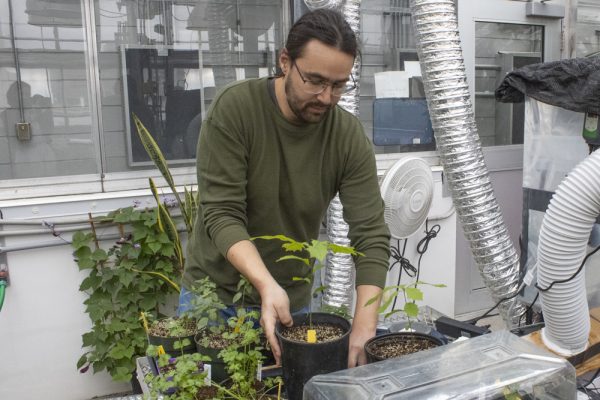United States Poet Laureate Joy Harjo speaks on poetry, time at Iowa
As part of the Center for Advancement Chat from the Old Cap series, UI alumna and current U.S. Poet Laureate Joy Harjo spoke about her writing and her experiences at the Writers’ Workshop, where she graduated from in 1978.
Poet and Member of the Muscogee Creek Nation Joy Harjo speaks during a virtual Chat from the Old Cap event on Wednesday, November 11, 2020. An alumna of the Iowa Writer’s Workshop, Harjo is the first native American to serve as the Poet Laureate Consultant for Poetry for the United States.
November 11, 2020
When Joy Harjo learned that she had been accepted into the University of Iowa’s Writers’ Workshop MFA program, she put her children in her truck and hopped on the road to Iowa. She’d been accepted into all four schools she applied for, three of which offered her fellowships, teaching assistantships, and money.
“There were few MFA programs in the country, but Iowa was considered the best,” Harjo said. “And so I applied…Iowa didn’t offer me anything along those lines.”
On Nov. 11, Harjo — who’s the current U.S. Poet Laureate — spoke at a Zoom panel as part of the University of Iowa Center for Advancement’s “Chat from the Old Cap” series. Hosted by Writers’ Workshop Director and Elizabeth M. Stanley Professor in the Arts, Lan Samantha Chang, the webinar consisted of Harjo talking about her life as a poet and her time at Iowa.
Named as the 23rd Poet Laureate in 2019, Harjo is the first Native American to acquire the position and has won countless awards, accolades, and honors for her writing and music. According to the Library of Congress, on April 30, she was reappointed for a second eight-month term as Poet Laureate. Harjo is a member of the Muscogee (Creek) Nation, hailing from the state of Oklahoma.
But before the spotlight comes the hardworking student. After graduating from the University of New Mexico, Harjo went on to earn her MFA at the Writers’ Workshop, where she graduated in 1978.
While at the UI, Harjo taught Native Literature and got to know the Meskwaki Nation , near Tama-Toledo, Iowa, the closest native community in the area. At the workshop, Harjo said she became friends with The House on Mango Street author Sandra Cisneros, where they bonded over being culturally different from many of their peers.
“That was the hardest part,” Harjo said during the forum. “And Sandra and I bonded a lot over that because even then her experience was different, but we’ve become lifelong friends.”
The poet said at the time, there were only seven Native students at the UI. Harjo added that one of her difficult experiences —along with anyone coming into the workshop — included coming from being the best person in one program to being with writers who have studied poetry their entire lives. Having been an art major at her school prior, Harjo said she felt impaired in that regard.
Harjo said that while the poetry program at the UI prepared her for life as a poet, the program itself was incredibly competitive. The artist did not approach poetry in that way, yet still found her unique voice. When she tried to write like the others in her class, she said she lost herself.
RELATED: Laverne Cox shares life experiences, advice with virtual audience
“And of course that fell flat,” Harjo said. “And then I just decided, ‘Well, I’m going to be who I am’…it was like I came to learn to deal with poetry on my own terms, and maybe that’s what writing programs ultimately do.”
Harjo wrote a poem about Iowa’s harsh winters that ravage the state, titled “Grace,” which she read to the virtual audience. The audience also heard the poet read her piece, “An American Sunrise.”
Earlier this year, in August, Harjo organized and edited an anthology, When The Light of Our World Was Subdued, Our Songs Came Through: A Norton Anthology of Native Nations Poetry, which consists of centuries of poetry by Native American poets, including oral literature. An anthology is a collection of artistic works, which can include music, writing, and more.
The Poet Laureate explained during the lecture that the anthology is arranged by geographical place of the poets, and is chronological by each geographic section.
“Instead of saying we organized ourselves according to place, I mean place organized us,” she said. “What’s grown there and the climate, how you relate, really has a lot to do with our poetry, our literature in a very intrinsic way.”
In May, she will have another Norton Anthology released, titled Living Nations, Living Words: An Anthology of First Peoples Poetry, as part of her project as Poet Laureate at the Library of Congress.
In an interview with The Daily Iowan before the lecture, Chang said that the UI is particularly strong in the literary arts, communications, and writing, and that it’s imperative that students are able to feel that as part of their identity.
“The fact is that we have some of the most extraordinary alumni writers of any university in the country,” Chang said. “I think it’s inspiring to us as a university and it’s inspiring to the undergraduates to know that the molecules they breathe were breathed by great writers.”
To young writers, Harjo advised, “Don’t follow in my footsteps.”
The poet said that it’s important for students to not compare themselves with someone else.
“That will get you nowhere because you’re not someone else you are your own self,” she said.



